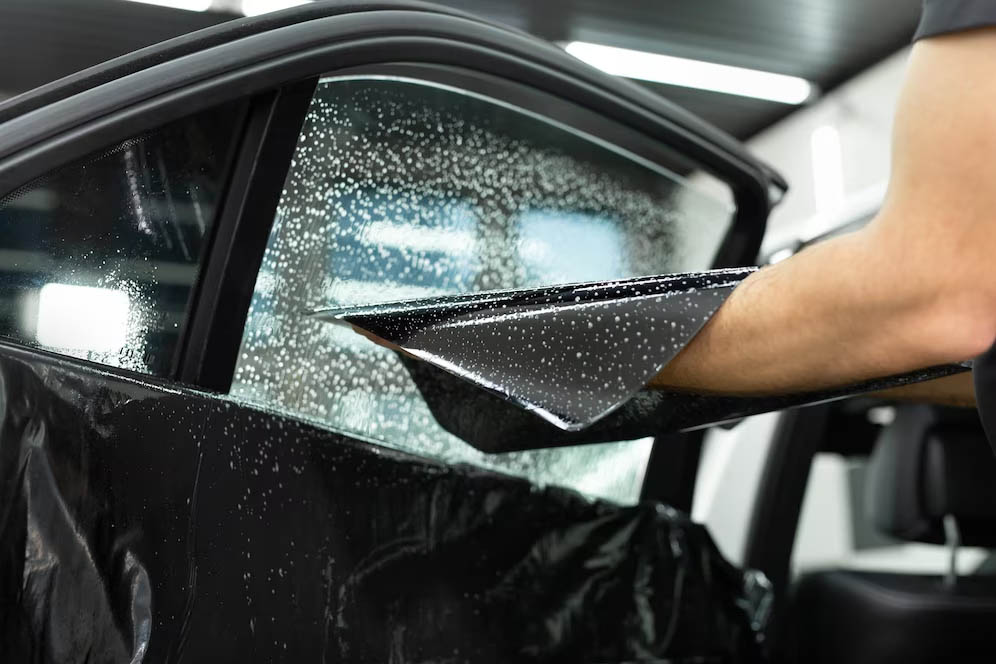Physical Address
304 North Cardinal St.
Dorchester Center, MA 02124
Physical Address
304 North Cardinal St.
Dorchester Center, MA 02124

Window tinting is a popular car modification that adds privacy, reduces heat, blocks harmful UV rays, and enhances your vehicle’s appearance. If you’re considering this upgrade, one of the first questions you’ll have is about cost. This guide breaks down everything you need to know about window tinting prices and what factors influence them.
Several key elements determine how much you’ll pay to tint your car windows:
Larger vehicles with more windows, like SUVs and minivans, cost more to tint than compact cars. While you might wonder how much does it cost to renovate a kitchen in your home, car tinting is much more affordable and typically scales with vehicle size.
The material quality dramatically impacts price:
Most pricing is calculated per window. A full car tint typically includes:
Professional installation adds to the cost but provides better results and usually includes a warranty. Just as how much does it cost to renovate a kitchen depends on DIY vs. hiring contractors, tinting costs differ based on who does the work.
Here’s what you can expect to pay for professional installation with mid-range film:
Many people compare major expenses when budgeting. While how much does it cost to renovate a kitchen might run $10,000-$50,000, window tinting is a much smaller investment with immediate benefits.

When deciding between basic and premium tint options, consider these benefits of higher-quality films:
Premium ceramic tints can block up to 95% of infrared heat, compared to 35-65% for basic dyed films. This efficiency difference affects your comfort and AC usage, similar to how energy-efficient appliances affect how much does it cost to renovate a kitchen long-term.
All quality tints block 99% of UV rays, protecting your skin and preventing interior fading.
Premium tints typically include lifetime warranties against bubbling, peeling, and color changes. Basic films may have limited or no warranty.
Tint darkness is measured by Visible Light Transmission (VLT) percentage. Lower numbers mean darker tint. Most states have specific limits:
Breaking these regulations can result in tickets, just as violating building codes affects how much does it cost to renovate a kitchen when permits are required.
When comparing the two approaches, think about expertise—just as you’d weigh how much does it cost to renovate a kitchen yourself versus hiring professionals.
Car window tinting is relatively affordable compared to other vehicle modifications or home renovations. While figuring out how much does it cost to renovate a kitchen might leave you with sticker shock in the thousands, window tinting delivers significant benefits for a fraction of that price.
Some comparisons:
Similarly, how much does it cost to renovate a kitchen can be 20-50 times more expensive than tinting all windows on your vehicle.
Many tint shops offer winter specials when business slows down, similar to how contractors might discount kitchen work in slower seasons, affecting how much does it cost to renovate a kitchen.
Some shops offer discounts when you combine tinting with other services like paint protection film or ceramic coating.
Prices can vary significantly between shops. Getting 3-5 quotes helps you find the best value without sacrificing quality.
Carbon tint offers many premium benefits at a lower price point than ceramic. When comparing how much does it cost to renovate a kitchen, mid-range materials also provide the best value-to-quality ratio.
The cost to tint car windows typically ranges from $150 to $800 for professional installation, depending on your vehicle type, film quality, and location. While basic tints offer affordability, premium options provide better performance and longevity.
Before making your decision, get multiple quotes from reputable installers, understand your local tint laws, and consider the long-term benefits of investing in quality film. Unlike major expenses such as how much does it cost to renovate a kitchen, window tinting is an affordable upgrade that enhances comfort, privacy, and vehicle value.